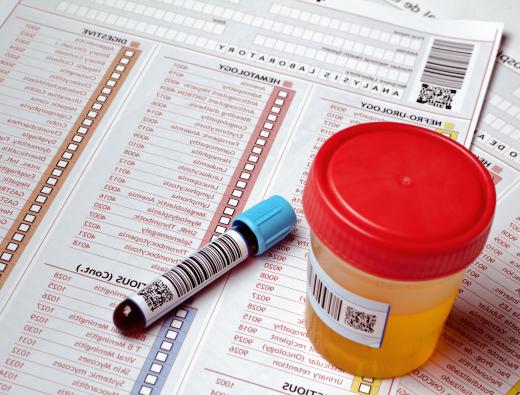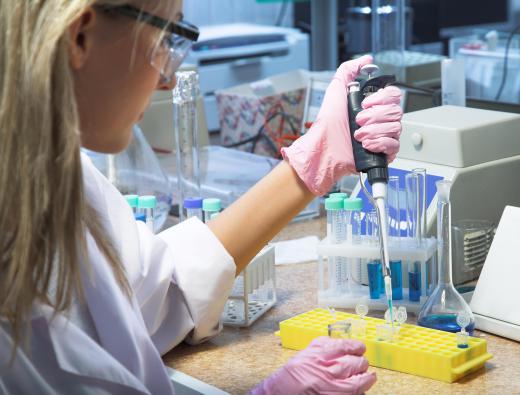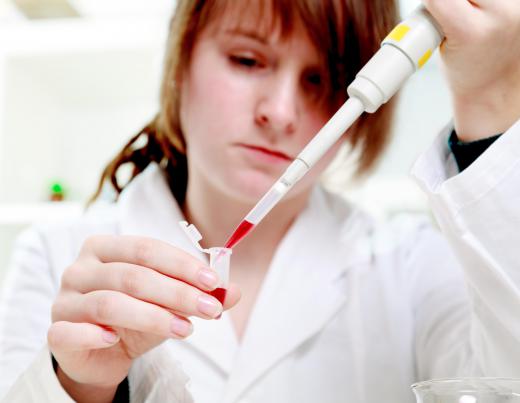What is an Antibody Assay?
 Mary McMahon
Mary McMahon
An antibody assay is a lab test used to check for presence of antibodies in a sample of blood, urine, tissue, or other material. This test can be used diagnostically to see if a patient has antibodies indicative of exposure to or infection with a given pathogen. It can also be used in biomedical research. A number of companies make antibody assay kits for labs, packaging all the tools for common tests using established methods for convenience. Labs can also use their own protocols and materials if they prefer this or if a commercial kit is not available.
The methodology used for an antibody assay can vary, depending on the technique used. In all cases, the sample is taken and mixed with a material containing an antigen. If the sample contains reactive antibodies, the antigen will bind to them. Another substance bound to the antigen is designed to act as a tag or flag; a common example is a fluorescent tag that will illuminate when the test is viewed under special lighting.

People can determine that antibodies are present on the basis of the tags, and they can also collect information about their concentrations. This can be useful when people want to determine how extensive an exposure was or when it occurred. Some examples of reasons people might order an antibody assay include a test to see if a vaccine was effective, looking for antibodies to show that the body reacted, or a test to see if a person is infected with a specific pathogen.

There are limiting factors on antibody assays. It is not possible to test generically for antibodies; the lab technician must have something to look for in a sample, such as antibodies to the human immunodeficiency virus. It's possible for someone to be infected with something else and have it not show up on the test because the technician didn't test for it. In other cases, reliable tests have not been developed to tag particular antibodies. False negatives and positives are a possibility and additional testing may be recommended to confirm results.

Contamination and failure to follow procedure can also be an issue. If equipment becomes contaminated, results will be skewed. Likewise, if a technician uses the wrong solution for the antibody assay, the thing being tested for will not show up. Careful measures are in place to make sure these tests are standardized and to reduce the risks of technician errors, increasing the accuracy and reliability of antibody assay results.
AS FEATURED ON:
AS FEATURED ON:














Discuss this Article
Post your comments